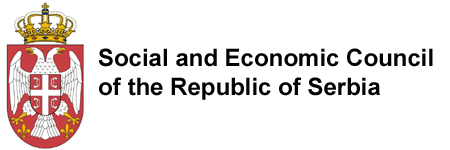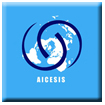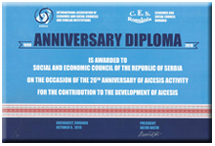The Social and Economic Council of the Republic of Serbia was first established in August 2001 under the Agreement on the Establishment and Scope and Mode of Operation of the Social and Economic Council of the Republic of Serbia, concluded between the Serbian Government, Confederation of Autonomous Trade Unions of Serbia (CATUS), Trade Union Confederation "Nezavisnost" (TUC "Nezavisnost"), Association of Free and Independent Trade Unions and the Serbian Association of Employers (SAE). The Agreement on the Promotion of Operation of the Social and Economic Council was signed as soon as in April 2002. The Law on the Social and Economic Council of the Republic of Serbia was adopted in November 2004 (Official Gazzete of the Republic of Serbia, No. 125/04) giving the Social and Economic Council of the Republic of Serbia a legal framework for establishment and operation. The Law defines the Council as an independent body, made up of representatives of the Serbian Government, representative associations of employers and representative trade unions. The Council is made up of 18 members and in the current convocation the Government is represented by six, SAE by six, CATUS by four and TUC "Nezavisnost" by two members. The Council was established with the aim of engaging in and developing a social dialogue on the issues of importance for realizing economic and social freedoms and rights, improving the financial, social and economic position of employers and employees and their living and working conditions, developing the negotiation culture, encouraging a peaceful settlement of work-related disputes, developing democracy and issuing magazines, brochures and other publications within the scope of its work. The Social and Economic rewiws the following issues:development and promotion of collective negotiations; influence of economic policy and its implementation measures on the social development and stability, employment, wage and pricing policies, competition and productivity, privatization and other structural adjustment issues; workplace and living environment protection; education and professional training; health care and social protection and security; demographic developments and other issues in accordance with the acts of the Social and Economic Counci. The Council also reviws and provides its viws on draft laws and other proposed regulatins of importance for the economic and social position of empolyees and employersl. The Council works in sessions that are scheduled and led by the Council chair. The Council elects the chair from amongst its ranks to a one-year term. The chair comes alternatively from the ranks of the government, representative trade unions and representative associations of employers. The chair represent the Council, concludes legal deals, disposes of funds on behalf of the Council and is accountable for the legality of conclusion of legal deals and disposal of funds. The Council adopts decisions by consensus in the form: stands, opinion, initiatives, recommendations and conclusions. In accordance with its Rules of Procedure, the Council has formed four permanent working bodies: Working Body on Economic Issues, Working Body on Collective Negotiations and Peceful Resolution of Work-Related Disputes, Working Body on Workplace Safety and Health Issuses and Work Body on Legislation. The permanent working bodies' members elect from amongst their ranks a president who presides over the meetings and activities of the working bodies. The Rules of Procedure are adopted by the working bodies, with the agreement of the Council. The efficiency and quality of work of the permanent working bodies may be improved due to the fact that other persons with appropriate skills and qualifications may take part in their work. The permanent working bodies are tasked with reviewing in a professional and responsible manner materials that refer to the issues in their jurisdiction, which are sent to them by the Council. The permanent working bodies have the obligation to send their professional opinions to the Council through the Secretary, within a deadline set by the Council. Under the Council Conclusion No. 53/05, the working bodies are to be made up of four members, respectively, and each of the bodies is to consist of one Government member, one SAE member, one CATUS member and one TUC "Nezavisnost" member. Funds for the establishment and operation of the Concil are from the Serbian state budget. Additional funds may be secured from donations, contributions and sponsorship of domestic and foreign legal and physical persons and from other legal sources. |








